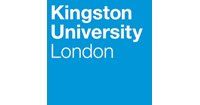
Preparing Second-Line Leaders
Course ID: 2509010101260EGI
Course Dates : 01/09/25 Course Duration : 5 Studying Day/s Course Location: London, UK
Language: Bilingual
Course Category: Professional and CPD Training Programs
Course Subcategories: Leadership and Management Excellence
Course Certified By: * Projacs Academy
* Professional Training and CPD Programs
Certification Will Be Issued From :
KSA
Course Fees: £4,838.34
Vat Not Included in the price. VAT may vary depending on the country where the course or workshop is held.
Click to Pay
Date has passed please contact us Sales@e-s-hub.com
Course Information
Introduction
Leadership development is a cornerstone of organizational success, and second-line leaders occupy a pivotal position in ensuring effective strategy execution and team performance. These leaders bridge the gap between frontline supervisors and senior executives, translating high-level objectives into actionable plans while fostering engagement and accountability within their teams. The role requires not only technical expertise but also advanced interpersonal skills, strategic thinking, and the ability to navigate complex organizational dynamics. As industries evolve at an unprecedented pace, organizations increasingly recognize the need for robust leadership pipelines that prepare individuals to step into these critical roles with confidence.
Despite its importance, second-line leadership remains an underserved area in many professional development programs. A common challenge is the assumption that experience alone equips individuals for this level of responsibility. However, research by leadership scholars such as John Kotter and Peter Senge highlights the unique demands placed on mid-level leaders, who must balance operational efficiency with visionary alignment. Gaps in communication, decision-making, and change management often emerge when second-line leaders lack structured preparation, leading to inefficiencies, employee disengagement, and missed opportunities for innovation.
The course "Preparing Second-Line Leaders" addresses these gaps by equipping participants with the tools, frameworks, and insights necessary to excel in their roles. Drawing from established leadership theories like Situational Leadership® and Transformational Leadership, the program emphasizes adaptability, emotional intelligence, and stakeholder collaboration. For instance, consider the case of a manufacturing company struggling to implement lean practices due to resistance from middle managers. By investing in targeted leadership training, the organization successfully empowered its second-line leaders to champion the initiative, resulting in improved productivity and morale.
For individuals, mastering the competencies covered in this course enhances career prospects and personal growth. Participants will gain a deeper understanding of how to inspire trust, manage conflict, and drive results—skills that are highly valued across industries. Organizations, on the other hand, benefit from stronger leadership continuity, reduced turnover, and a culture of excellence. According to a Harvard Business Review study, companies with well-prepared mid-level leaders outperform their peers in profitability and market share, underscoring the tangible impact of focused development efforts.
Practical applications abound, whether in healthcare settings where nurse managers coordinate multidisciplinary teams or tech firms where project leads oversee agile sprints. One notable example involves a financial services firm that implemented a similar training program for its branch managers. Within six months, customer satisfaction scores rose by 15%, demonstrating the direct link between leadership capability and business outcomes. Such stories underscore the transformative potential of equipping second-line leaders with the right skill set.
Ultimately, this course represents more than just professional development—it is an investment in sustainable organizational growth. By addressing both individual and systemic challenges, it provides a comprehensive framework for nurturing leaders who can thrive in today’s dynamic environments. Through interactive discussions, real-world simulations, and expert guidance, participants will leave equipped to lead with clarity, conviction, and compassion.
Objectives
By attending this course, participants will be able to:
Analyze key leadership theories and apply them to real-world scenarios involving team motivation and performance enhancement.
Evaluate communication strategies to foster transparency and trust within cross-functional teams.
Design action plans for implementing organizational changes while minimizing resistance and maximizing buy-in.
Implement conflict resolution techniques to address interpersonal challenges and promote collaborative work environments.
Apply ethical decision-making frameworks to navigate complex dilemmas and uphold organizational values.
Assess team dynamics using diagnostic tools and develop interventions to improve cohesion and productivity.
Synthesize feedback from stakeholders to refine leadership approaches and achieve measurable improvements in team outcomes.
Who Should Attend?
This course is ideal for:
Mid-level managers transitioning into second-line leadership roles.
Team leaders seeking to enhance their influence and effectiveness within their organizations.
HR professionals responsible for designing leadership development initiatives.
Consultants supporting clients in optimizing their leadership structures.
Educators and trainers interested in incorporating leadership best practices into their curricula.
These groups will find the course valuable as it bridges theoretical knowledge with practical application, addressing the specific needs of those tasked with leading teams and driving results. While prior leadership experience is beneficial, the course is designed to accommodate both intermediate learners and advanced practitioners looking to refine their skills.
Training Method
• Pre-assessment
• Live group instruction
• Use of real-world examples, case studies and exercises
• Interactive participation and discussion
• Power point presentation, LCD and flip chart
• Group activities and tests
• Each participant receives a 7” Tablet containing a copy of the presentation, slides and handouts
• Post-assessment
Program Support
This program is supported by:
* Interactive discussions
* Role-play
* Case studies and highlight the techniques available to the participants.
Daily Agenda
The course agenda will be as follows:
• Technical Session 08.30-10.00 am
• Coffee Break 10.00-10.15 am
• Technical Session 10.15-12.15 noon
• Coffee Break 12.15-12.45 pm
• Technical Session 12.45-02.30 pm
• Course Ends 02.30 pm
Course Outlines
Foundations of Second-Line Leadership
Understanding the Role and Responsibilities of Second-Line Leaders
Key Leadership Theories and Their Practical Implications
Building Emotional Intelligence for Effective Leadership
Developing a Personal Leadership Philosophy
Day 2:
Communication and Collaboration
Mastering Active Listening and Feedback Techniques
Strategies for Cross-Functional Team Engagement
Navigating Difficult Conversations with Confidence
Leveraging Technology for Enhanced Communication
Day 3:
Change Management and Decision-Making
Principles of Change Leadership and Implementation
Tools for Managing Resistance to Organizational Change
Ethical Decision-Making in Complex Scenarios
Balancing Short-Term Goals with Long-Term Vision
Day 4:
Conflict Resolution and Team Dynamics
Identifying Sources of Conflict and Their Impact on Teams
Applying Mediation Techniques to Resolve Disputes
Assessing Team Performance Using Diagnostic Models
Creating Action Plans for Improving Team Cohesion
Day 5:
Strategic Leadership and Continuous Improvement
Aligning Team Objectives with Organizational Strategy
Measuring Leadership Effectiveness Through Stakeholder Feedback
Developing Succession Plans for Sustainable Growth
Crafting a Roadmap for Ongoing Professional Development



















































